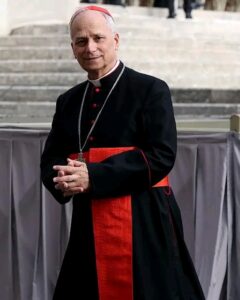Robert Francis Prevost Becomes Pope Leone XIV…
Robert Francis Prevost has officially been announced as the new leader of the Roman Catholic Church, taking the papal name Pope Leone XIV. This historic moment marks the beginning of a new chapter in the Church’s long and storied history. With this appointment, Prevost assumes the highest spiritual position in the Catholic hierarchy, becoming the spiritual shepherd to more than a billion Catholics worldwide. The announcement has been met with both excitement and curiosity, as faithful followers, religious leaders, and observers around the world reflect on what his leadership may bring to the future of the Church.
Born in the United States, Robert Francis Prevost’s journey to the papacy has been characterized by a life of devotion, service, and leadership within the Church. Prior to this elevation, he served in a number of significant ecclesiastical roles, including as a bishop and as the prefect of the Dicastery for Bishops—a key position in the Vatican responsible for the appointment of bishops around the world. Known for his administrative acumen, pastoral sensitivity, and theological depth, Pope Leone XIV is stepping into the papal office with a strong foundation of experience and vision.
As Pope Leone XIV, Prevost now carries the weighty responsibility of guiding the global Catholic community through both spiritual and institutional challenges. The Church faces numerous pressing issues, from declining church attendance in certain parts of the world to the need for reform, transparency, and adaptation in the modern age. With his leadership style described as thoughtful and inclusive, many hope that his papacy will be marked by a renewed emphasis on compassion, dialogue, and moral clarity.
This election comes at a time of great significance for the Church, as it continues to navigate complex social, political, and cultural currents. Pope Leone XIV is expected to play a crucial role in shaping the Church’s voice on global matters such as climate change, migration, economic inequality, and peace efforts. His background suggests that he may prioritize pastoral care, outreach to marginalized communities, and deeper engagement with youth and laypeople. Observers also speculate on how he might address the ongoing discussions around clerical celibacy, the role of women in the Church, and the need for greater accountability in cases of abuse.
The name he has chosen—Leone XIV—evokes historical associations with previous Popes named Leo, particularly Leo XIII, who was known for his efforts to reconcile the Church with the modern world and advocate for workers’ rights through the encyclical Rerum Novarum. It remains to be seen whether Pope Leone XIV will chart a similar path of social teaching and reform or define a new direction entirely.
For now, Catholics and the wider global community watch with hopeful anticipation as Pope Leone XIV steps into his new role. His election marks not only a change in leadership but also a potential turning point in the ongoing evolution of one of the world’s oldest and most influential religious institutions.
